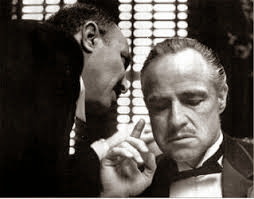 Sections 126 to 129 of the Evidence Act deal with legal professional privilege. Section 126 provides that no advocate shall be permitted to disclose any communication made to him by or on behalf of his client for the purpose of his employment UNLESS the clients give express consent.
Sections 126 to 129 of the Evidence Act deal with legal professional privilege. Section 126 provides that no advocate shall be permitted to disclose any communication made to him by or on behalf of his client for the purpose of his employment UNLESS the clients give express consent. To all my dearest groupmates, kindly explain these sections, state the general rule and the exception. Support ur answer with case authorities.
Shin yi

Section 126 provides that no advocate shall at any time being permitted, unless with his client's express consent,
ReplyDelete(i) to disclosure any communication made to him in the course and for the purpose of his employment as such advocate by or on behalf of his client, or
(ii) to state the contents or conditions of any document with which he has become acquainted in the course and for the purpose of his professional employment, or
(iii) to disclose any advice given by him to his client in the course and for the purpose of such employment
Provided that nothing in this section shall protect from disclosure:-
(a) any such communication made in furtherance of any illegal purpose-->illustration (b)
(b) any fact observed by any advocate in the course of his employment as such showing that any crime or fraud has been committed since the commencement of his employment-->illustration (c)
(2) It is immaterial whether the attention of the advocate was or was not directed to the fact by or on behalf of his client
The explanation to the section provides that the obligation stated in section 126 continues even after the employment has ceased.
There are two exceptions under section 126, which are proviso (a) and (b),as stated above.
Although the marginal notes uses the word "Professional Communication", it is clear that section 126 only covers the legal profession. This can be seen in Public Prosecutor v Haji Kassim which states that the privilege in section 126 of the Evidence Ordinance does not protect professional disclosures made to clergyman or doctors.
The general rule of this section is to prevent an advocate from disclosing certain matters without his client express consent. The privilege is that of the clients and only the client can waive it. Among the reasons for this privilege are that the conduct of legal business without professional assistance is difficult, if not impossible and the necessity in order to render such assistance effectual, that there must be full disclosure between lawyer and client.
The application of section 126 will only happen when there is a advocate/solicitor-client relationship. In Chua Su Yin & Co v Ng Sung Yee, it was held that before this section can apply there must be a prerequisite of solicitor and client relationship and any disclosure, if it is to take place, must be with the absolute consent of the client.
In Dato Au Ba Chi & Ors v Koh Keng Kheng & Ors, during the trial, the Plaintiff referred to a document found in the agreed bundle of documents. The Defendants' counsel applied to have the document excluded on the ground that it was mistakenly included. The court held that the document being a document containing instructions from the defendant to their solicitors, is a privileged document and cannot be disclosed to anyone except with the express consent given by each of the defendants. Even if the defendants solicitor had given the documents to the first plaintiff in the presence of all the defendants , the fact that none of the defendants had objected to it, or that all had remained silent, did not constitute waiver of the privilege since the law requires that the defendants must give their express consent to their solicitors before the documents would be disclosed to anyone. This case indicates that the court will strictly enforce the express consent requirement.
by Heng Eng Gee A132629
Deletethanks eng gee for the good illustrations (Shin Yi)
ReplyDelete